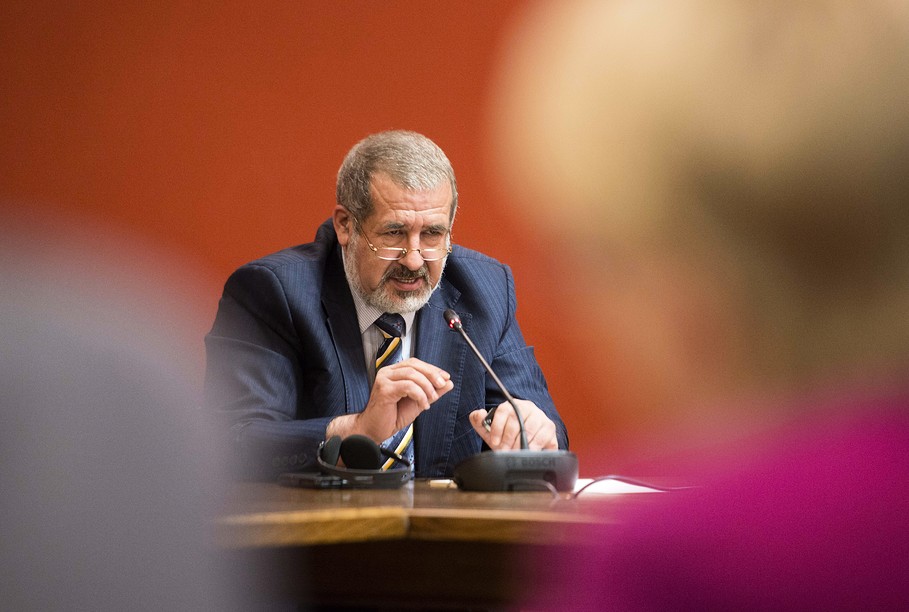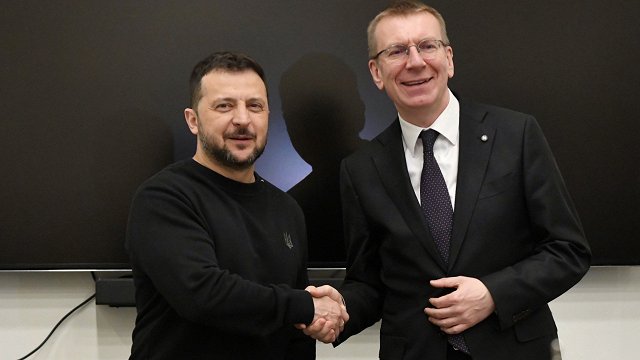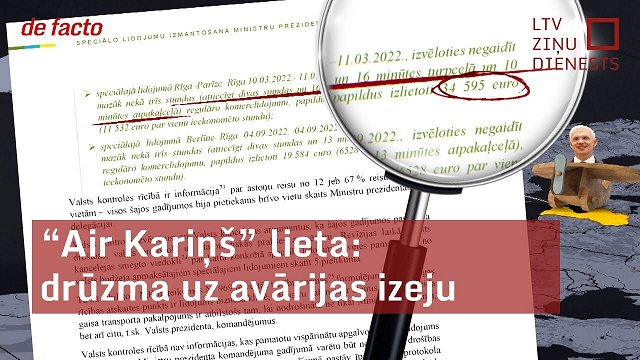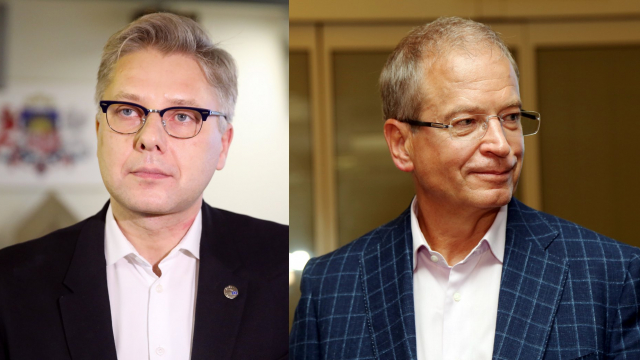Met with leaders of Crimean Tatars Dzhemilev and Chubarov, intl. organizations must act on gross human rights violations of Tatars in Crimea
— Edgars Rinkēvičs (@edgarsrinkevics) August 22, 2014
Current head of the Mejlis Refat Chubarov and his predecessor Mustafa Jemilev met at the Saeima building with the deputies’ Group for Cooperation with the Parliament of Ukraine to discuss both Latvia’s support for Ukraine and Crimea as well as future development prospects for Crimea itself.
Chubarov thanked Latvia for its support yet acknowledged that not always are visits to Crimea by politicians from Latvia looked on as such.
Mustafa Jemilev pointed out that in fact Soviet times have returned to Crimea and it’s possible that residents’ attitudes are even more cynical now than in the past.
Responding to queries from Harmony Center MP’s Igors Pimenovs and Nikolajs Kabanovs about relations between Russians and Tatars in Crimea, both Chubarov and Jemilev cited numerous incidents of detentions, psychological pressure at the workplace, goading to identify persons from the so-called ‘5th Column’ – meaning Tatars – who oppose Crimea’s joining with Russia.
Chubarov indicated that some Ukrainian Rada members have in fact hindered the efforts of Crimea’s Tatars to speak out against the repeated loss of their homeland.
“There are still people in the Ukraine parliament who not only make excuses for it, but also announce that Stalin’s repressions against the Crimean Tatars were justified,” he told the deputies. He also hinted that certain politicians from other states, including Latvia, were taking up similar tactics.
“I hope that soon we will outlaw the Communist Party, though we realize that voices will be raised to defend these people, even in places like Latvia,” said the Crimean Tatar assembly head.
He said the Crimean Tatars were confused at the attitudes expressed by some of Latvia’s politicians:
“MEP Tatjana Ždanoka met with the criminal [self-appointed Crimean premier Sergey] Aksjonov, whose defense units are known to abduct people. Not once has she expressed the intent to meet with Crimea’s Tatar community, though she talks much of citizens’ and non-citizens’ rights in Latvia. [MEP Andrejs] Mamikins urges the calling-off of sanctions. How can you stop fascists without applying at least the elementary restrictive measures against them?” Chubarov said.
With regard to future developments neither leader expressed much hope that Ukraine could lawfully regain Crimea, nor that Russia would invest significant resources in the peninsula to improve the lives of residents.
“Crimea will be developed, but not for the people. The entire strengthening of the military infrastructure is now underway in Crimea. In Soviet times there was this idea that Crimea should host an indestructible aircraft carrier. Right now there are 11 military airfields being fixed up along with the road system. If the Mistrals are sold to Russia, they’ll be based in Sevastopol. That will allow the control of not just Ukraine, but the whole Black Sea basin,” warned Chubarov.
Despite the provocations, Crimea’s Tatars are themselves refraining from war preparations – if the entire world community isn’t able to find the legal and diplomatic solutions to Russia’s aggression, then a few ten-thousands of Tatars stand an even lesser chance.
MP Ilze Viņķele closed the inter-parliamentary group meeting by saying that Latvia would continue its current course of condemning Russia’s actions and refusing to recognize its annexation of Crimea. She also promised to keep providing support for political reforms and the implementation of the EU Association Agreement with Ukraine.
Worldbulletin.net reported Thursday that Ukrainian President Petro Poroshenko appointed Mustafa Jemilev as his representative on Crimean Tatar affairs. Both he and Chubarov have been barred for five years from the Russian-annexed Crimean peninsula and from organizing their people by Crimean Prosecutor Natalia Poklonskaya, who also threatened that the Mejlis would be dissolved if it “engaged in extremist activity.”
Chubarov has close personal ties to Latvia, having lived in Riga during the final years of the USSR. After graduating from the Moscow State Historic-Archive Institute in 1983 he moved to Riga and until September 1990 worked at the Central State Archives of the October Revolution and the Socialist Construction of Latvian SSR in Riga. In 1989-91 Chubarov was a regional representative at the Riga city council with the pro-independence Popular Front of Latvia faction.
Since November 2013 he has served as the chairman of the Mejlis of the Crimean Tatar People. He served as Deputy Chairman of the Supreme Council of Crimea from 1995 to 1998 and as People's Deputy of Ukraine from 1998 to 2007. He also has served as the President of the Worldwide Congress of Crimean Tatars since 2009.
The Crimean Tatars largely boycotted the March referendum which saw the peninsula break away from Ukraine and append itself to Russia.
The 300,000-strong native Crimean Tatar population have been against joining Russia due to their experiences in the past. The Soviet Union under Stalin forcibly deported Crimean Tatars from their homeland in 1944 as a form of collective punishment for alleged collaboration with the Nazis during World War II.
Over 230,000 people were deported, mainly to Uzbekistan, including the entire ethnic Crimean Tatar population as well as a small number of ethnic Greeks and Bulgarians. A large number of deportees died from starvation or disease as a direct result of deportation.





























